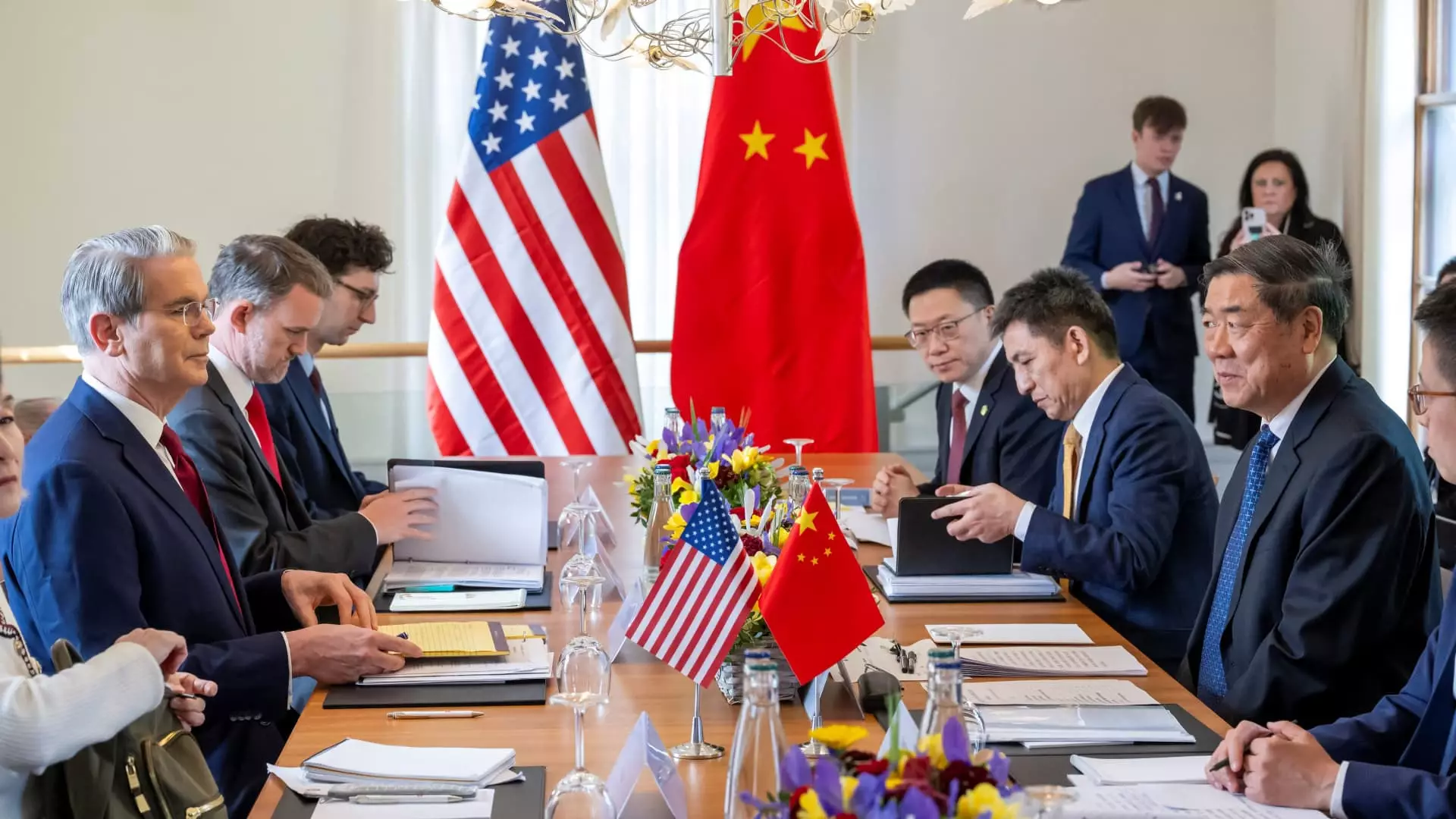The ongoing trade skirmish between the United States and China is not merely a matter of economics; it is a complex web woven with geopolitical threads, technology, and, predominantly, a severe lack of appreciation for mutual respect. After the Trump administration’s recent move to tighten the noose around Chinese tech firms—most notably through the signals emitted toward Huawei—Beijing unleashed its firm dissent, characterizing the U.S. stance as undermining the fragile trade agreements that were momentarily struck. Such actions reveal a dangerous trend: the tendency to weaponize trade as a tool of statecraft in a manner that borders on reckless.
China’s response to the U.S. Commerce Department’s alert on its advanced computing chips is indicative of a deeper fissure between these two global behemoths. When accusations of “discriminatory” practices arise, it reflects a shared narrative arising from both parties—namely, that each is convinced of their moral high ground. China positions itself as a defender of free market principles, while the U.S. frames its trade policy as a protective measure against dubious practices. However, what is forgotten amid this tit-for-tat exchange is the broader impact on global economic stability.
Where Moral High Ground Becomes Moral Hazard
It is glaringly apparent that neither side is innocent. The U.S. accuses China of intellectual property theft and market manipulation, while China decries U.S. protectionism as a form of bullying. The reality is that both countries are entangled in systemic issues of trust and accountability without a clear avenue for resolution. Washington’s heavy-handed warnings against the utilization of certain Chinese chips serve not just as a line of defense but as a way to stifle competition and consolidate its own market power.
This discernible imbalance raises crucial questions about the morality of state-sponsored economic policies. The notion that one nation could dictate terms to another—especially in the realm of technology—opens the door to unilateralism that ultimately pits nation against nation. A ruling-class mentality emerges, one which believes that controlling other countries’ economic destinies ensures prosperity back home. Such a belief is commendable only in the short term but is tactically flawed over the long haul.
Impact on Global Trade Dynamics
The assertion that the U.S. actions are “seriously damaging” not only to China’s interests but to the global semiconductor supply chain is an understatement. When a hegemonic power begins to act unilaterally, it sparks a chain reaction that can lead to retaliation. China’s assertion that U.S. practices may backfire—resulting in diminished competitiveness—serves as a warning that the stakes are high for everyone involved. This attitude of unilateralism is not only detrimental to trade discussions but also serves to destabilize the broader technological landscape.
In a world that’s increasingly interdependent, where technological innovation fuels economic growth, attempting to curb one nation’s advancements will ultimately backfire. Disconnecting countries economically in a knee-jerk fashion—especially when technology is the battlefield—leads to a fragmented world where progress stalls. The challenge lies within fostering an environment that promotes cooperation instead of division, one that encourages innovation while safeguarding fair practices.
The Reality Check on National Interests
Let’s not forget: the implications of these trade tensions are profound and multifaceted. They potentially wear down the very fabric of cooperation that has characterized international relations since World War II. The haughty national interests displayed by the U.S.—mistakenly framed as patriotic—could spell disaster for innovators and consumers alike, stifling the creativity that has historically driven nations forward.
The U.S. may find transient satisfaction in its protectionist measures, but it could ultimately morph into an inward-looking giant, unprepared for a tech-savvy future that’s overwhelmingly collaborative. As China resonates with calls for immediate course corrections from Washington, those in power should tread carefully. What should be envisioned is a new global paradigm rooted in respect and mutual benefit—a bold reimagining of international trade, away from isolationism and toward inclusivity.
As the world watches, both powers must recognize that their choices will reverberate globally, shaping an economic landscape that no longer accepts unilateral decisions as consequence-free. The question remains: will they seize the moment to construct a more equitable system or continue to engage in self-destructive competition?

